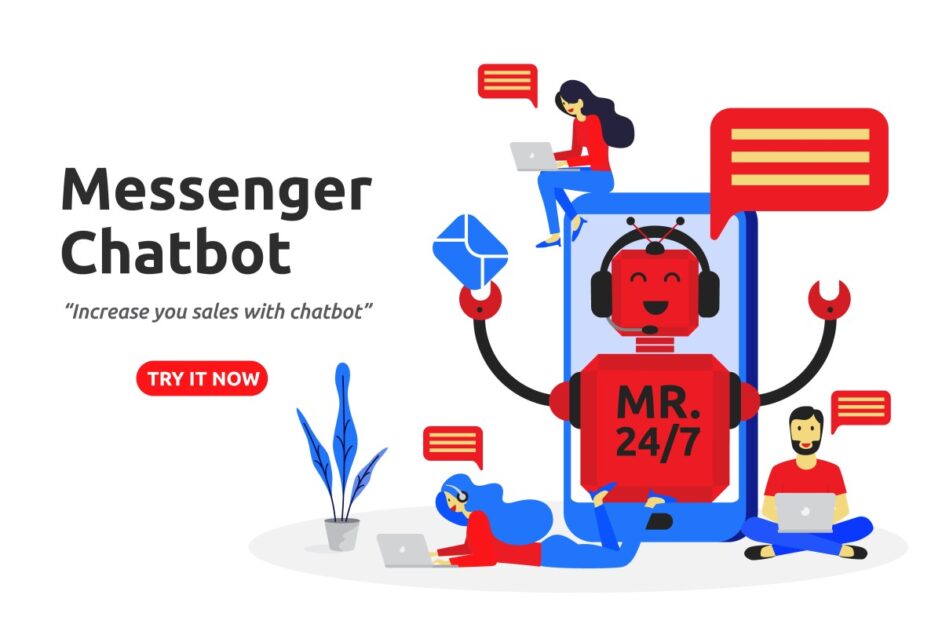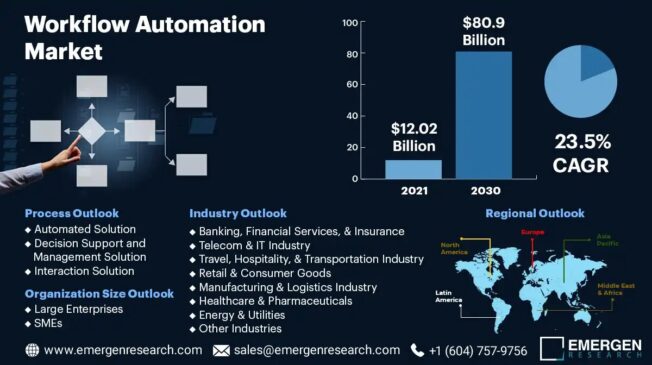![]()
In today’s ever-changing digital landscape, integrating artificial intelligence (AI) has become crucial for businesses to excel in marketing. AI offers tremendous power and efficiency to marketing strategies, allowing companies to leverage machine learning and chatbots for unparalleled achievements.
Through machine learning algorithms, copious amounts of data can be analyzed to reveal valuable insights, while chatbots facilitate personalized and automated customer interactions.
In this article, we will explore the significance of AI in marketing strategies, provide an overview of machine learning and chatbots, and delve into the substantial benefits of leveraging AI for marketing success.
AI-Powered Marketing Strategies
In digital marketing, AI-powered marketing uses artificial intelligence technologies like machine learning and natural language processing. It involves leveraging AI algorithms and tools to analyze data, automate tasks, personalize customer experiences, and optimize marketing efforts.
The components of AI-powered marketing include data analysis, predictive analytics, customer segmentation, personalized recommendations, chatbot implementation, and automated customer interactions.
Role of Machine Learning in Marketing
Machine learning is pivotal in digital marketing by enabling data-driven decision-making and predictive analytics. It empowers marketers to analyze vast amounts of data and uncover valuable insights regarding customer behavior, preferences, and trends.
Machine learning algorithms help optimize marketing campaigns, enhance targeting accuracy, and deliver personalized customer experiences, ultimately improving conversion rates and customer satisfaction.
Role of Chatbots in Marketing
Chatbots have become a significant asset in digital marketing strategies. These AI-powered virtual assistants offer instant and personalized responses to customer inquiries, provide product information, assist in purchases, and offer proactive suggestions.
Chatbots enhance customer engagement, deliver real-time support, and enable businesses to provide round-the-clock assistance, improving customer satisfaction and streamlining customer interactions.
The role of AI in digital marketing is pivotal, transforming how businesses interact with customers, optimize marketing efforts, and drive business success. By leveraging machine learning and chatbots, businesses can enhance personalization, automate tasks, and deliver exceptional customer experiences in the digital realm.
Leveraging Machine Learning for Marketing Success
Customer Segmentation and Targeting Using Machine Learning
Machine learning algorithms can analyze vast amounts of customer data to identify patterns and segments within the customer base. This enables marketers to target specific customer groups with personalized messages and offers, increasing engagement and conversion rates.
Predictive Analytics for Personalized Marketing
Machine learning can predict customer behavior and preferences by applying predictive analytics models to customer data. This allows marketers to tailor their marketing campaigns and messages to individual customers, delivering personalized experiences that increase customer satisfaction and loyalty.
Recommendation Engines and Personalized Product Recommendations
Machine learning-powered recommendation engines can analyze customer behavior and preferences to suggest relevant products or services. These recommendations enhance the customer experience, increase cross-selling and upselling opportunities, and drive higher conversion rates.
Optimizing Pricing and Promotions Using Machine Learning
Machine learning algorithms can analyze market trends, competitor pricing, and customer buying patterns to optimize pricing and promotional strategies. This helps businesses maximize revenue and profitability by setting the right prices and offering targeted promotions that resonate with customers.
Ethical Considerations and Best Practices
Privacy and Data Security in Ai-Powered Marketing
AI-powered marketing relies on customer data, and it is crucial to prioritize privacy and data security. Marketers should implement robust security measures, obtain explicit consent for data usage, and adhere to data protection regulations to protect customer information.
Transparency and Disclosure of AI Usage
Marketers must be transparent about their use of AI in marketing practices. Customers should know how AI is utilized, including data collection, analysis, and decision-making processes. Clear disclosure ensures trust and enables customers to make informed choices.
Handling Bias and Ensuring Fairness in AI Algorithms
Bias can inadvertently be present in AI algorithms, leading to unfair or discriminatory outcomes. Marketers should proactively address bias by regularly monitoring and auditing algorithms, diversifying data sources, and ensuring diverse teams are involved in algorithm development to enhance fairness and inclusivity.
Monitoring and Evaluating AI Performance and Impact
Continuous monitoring and evaluation of AI systems are crucial. Marketers should regularly assess the performance and impact of AI algorithms in terms of effectiveness and ethical implications. Regular audits and feedback loops enable improvements, ensure accountability, and mitigate potential risks.
Future Trends and Challenges in AI-Powered Marketing
Advances in Natural Language Processing and Conversational AI
Natural language processing (NLP) is advancing rapidly, enabling AI systems to understand and respond to human language more accurately. This opens up new opportunities for conversational AI in marketing, such as chatbots, virtual assistants, and voice-enabled interactions, to provide personalized and seamless customer experiences.
AI-Powered Voice Assistants and Their Impact on Marketing
Voice assistants like Siri, Alexa, and Google Assistant are becoming increasingly prevalent. Marketers can leverage voice search optimization and voice-enabled advertising to reach customers through voice-enabled devices. Voice assistants also enable more natural and interactive customer interactions, shaping the future of marketing.
Integration of AI with Other Emerging Technologies
AI can be integrated with emerging technologies like Augmented Reality (AR) and Virtual Reality (VR) to enhance customer experiences. For example, AI-powered algorithms can analyze user preferences and behaviors to deliver personalized AR or VR content, leading to immersive and tailored marketing experiences.
Addressing Challenges and Limitations of AI in Marketing
Despite its potential, AI in marketing faces challenges and limitations. Marketers need to address issues such as data quality, algorithmic transparency, and the ethical use of AI. They should also consider balancing automation and the human touch in customer interactions to maintain personalization and trust.
Conclusion
The integration of artificial intelligence, particularly machine learning, and chatbots, has revolutionized marketing strategies, empowering businesses to achieve unprecedented success in the digital landscape.
Through machine learning, marketers can unlock valuable insights from vast amounts of data, optimize campaigns, and deliver personalized experiences to customers. Chatbots enable personalized and automated customer interactions, enhancing engagement and satisfaction.
However, marketers need to consider ethical considerations, prioritize privacy and data security, and address potential biases in AI algorithms.
As AI advances, with trends like conversational AI and voice assistants shaping the future, businesses must adapt and leverage AI-powered marketing strategies to stay competitive and drive business growth.



